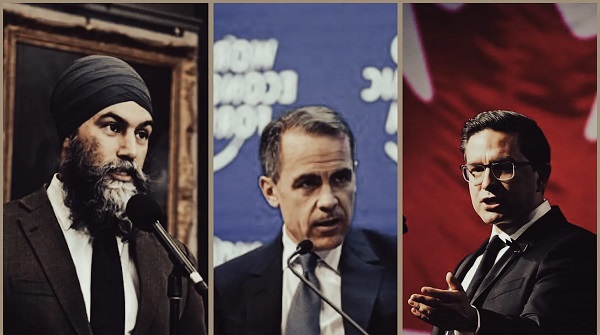Business
The “GST Holiday”… A Smokescreen For Scandal
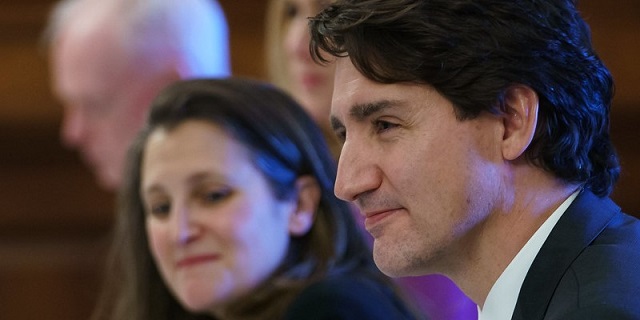
A GST holiday sounded like it might be a good thing, but it turned out to be a gimmick to distract us from more serious issues, writes Marco Navarro-Genie. Courtesy Ivanoh Demers/Radio-Canada
One more racket from a government that rules by racket
The Prime Minister’s proposed GST holiday and $250 rebate scheme, initially estimated at $6.2 billion, is yet another calculated ploy to distract Canadians from the ethical failures of his government. Though the rebate portion was abandoned in Parliament, the GST holiday remains a superficial gesture in a government-induced affordability crisis.
This tactic highlights the government’s willingness to appear generous (with our money) while burdening taxpayers with increased debt to mask corruption and maintain power.
At the heart of this deflection lies the Sustainable Development Technology Canada (SDTC) program, dubbed by critics as the “Green Slush Fund.”
The Auditor General recently revealed shocking improprieties within the program. The findings include that the federal ethics office reported at least 90 violations of ethics rules and nearly $400 million handed out to companies linked to SDTC board members. This gross misuse of public funds undermines the program’s goals of fostering green innovation, instead solidifying public skepticism about Ottawa’s ethical compass.
Efforts to hold the government accountable for its mismanagement have faced significant obstruction. Parliament has requested unredacted documents related to the scandal but has been met with resistance from the government. Trudeau’s administration has provided vague justifications for its refusal to comply, citing reasons such as protecting commercial confidentiality and national security.
The Speaker of the House, a Liberal MP, ruled that Parliament has the constitutional right to demand these documents. He ordered the government to release them unredacted. However, weeks have now passed, and the government continues its obstructionist tactics. Parliament has been stalled for weeks, effectively freezing legislative proceedings.
Under parliamentary rules, the House can halt all proceedings until the government complies with the Speaker’s ruling. However, the Speaker lacks direct enforcement power, leaving the opposition parties to hold the line. Last week, the government attempted to submit documents but presented them in a heavily redacted form, further eroding trust.
The standoff highlights the lengths the federal government will go to avoid transparency. By refusing to release the documents, the Liberals undermine Parliament’s authority and delay critical legislative work to protect themselves from scrutiny.
The two-month GST holiday passed with NDP support, removes the GST/HST from:
- Prepared foods: Items like pre-made meals and restaurant dining.
- Children’s essentials: Clothing, footwear, and diapers.
- Select gift items: Categories remain vaguely defined.
However, basic groceries are already GST-exempt. According to food policy expert Sylvain Charlebois, the average Canadian household will save only a few dollars. This gesture is hardly a windfall in the context of surging inflation and housing costs — driven mainly by the government’s policies.
The fundamental aim of the GST holiday is not economic relief but political manipulation. By framing the Conservatives’ refusal to pass the broader $6.2 billion package as heartless, the government seeks to paint the Official Opposition as the Grinch who stole Christmas.
Liberal MPs have already taken to social media to attack the Conservatives for “denying Canadians a tax break.”
The government seems silent about the fact that the Bloc Quebecois also voted against the tax gimmick. Meanwhile, the NDP has shown a willingness to facilitate this naked vote-buying bid, further eroding its credibility as an opposition party.
The Conservatives have remained steadfast, demanding full transparency on the SDTC scandal before regular proceedings in the House can resume. This stance, however, has allowed the Liberals to weaponize affordability relief as a wedge issue.
The GST holiday’s costs, like most federal spending under this government, will disproportionately fall on Alberta, Saskatchewan, and British Columbia. These three provinces already bear the brunt of federal revenue extraction through resource wealth, only to see their contributions funnelled into vote-rich areas of central Canada to prop up an increasingly unpopular government. The move further stokes resentment in the West, damaging national unity.
How this standoff will resolve is anyone’s guess. The government appears content to drag its feet, betting that public fatigue will weaken opposition resolve. Yet it remains clear that Liberals are willing to misspend billions in borrowed money to hide how they’ve misused hundreds of millions on partisan rewards and cronies. This cynical strategy prioritizes the political survival of their arrangement with the NDP over fiscal responsibility and democratic accountability.
For democracy to function, Parliament must assert its supremacy, hold this minority government to account, and ensure transparency in the face of systemic corruption and mismanagement. The NDP’s collaboration with the offenders may make it impossible, however. Allowing the government to defy Parliament and the Speaker’s ruling sets a dangerous precedent, weakening the foundations of Canadian democracy.
Marco Navarro-Genie is VP Policy and Research at the Frontier Centre for Public Policy. He is co-author, with Barry Cooper, of COVID-19: The Politics of a Pandemic Moral Panic (2020).
Business
Top Canadian bank ditches UN-backed ‘net zero’ climate goals it helped create
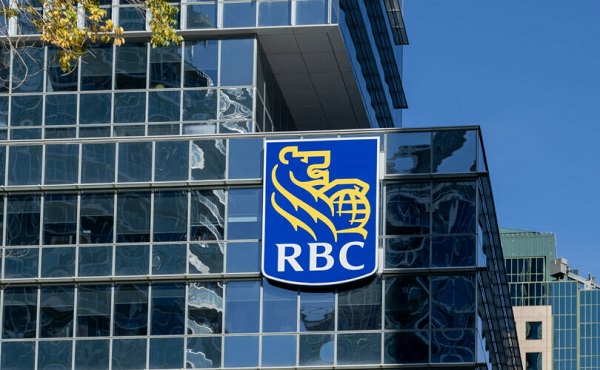
From LifeSiteNews
RBC’s dropping of its ‘net zero’ finance targets came just one day after the Liberal Party under Mark Carney was re-elected in Canada.
Just one day after the re-election of the Liberal Party under Mark Carney, the Royal Bank of Canada joined the growing list of top banks withdrawing from a United Nations-backed “net zero” alliance that supports the eventual elimination of the nation’s oil and gas industry in the name of “climate change.”
The Royal Bank of Canada (RBC) on Tuesday quietly dumped its UN-backed Net-Zero Banking Alliance (NZBA) sustainable finance targets, which called for banks to come in line with the push for net-zero carbon emissions by 2050. The NZBA is a subgroup of the Glasgow Financial Alliance for Net Zero (GFANZ), which Carney was co-chair of until recently.
RBC’s departure comes despite the fact that it was one of the NZBA’s founding members.
RBC joins Toronto-Dominion Bank (TD), Bank of Montreal (BMO), National Bank of Canada, and the Canadian Imperial Bank of Commerce (CIBC) who earlier in the year said they were withdrawing from the NZBA.
The bank announced the move away from a green agenda in its 2024 sustainability report, noting it would no longer look to pursue a $500 billion sustainable finance goal. It cited changes to Canada’s federal Competition Act as the reason.
The changes to the act, known as the “greenwashing law,” now mandate that companies provide proof of their environmental claims.
“We have reviewed our methodology and have concluded that it may not have appropriately measured certain of our sustainable finance activities,” noted RBC in its report.
RBC also noted it would not make public any of its metrics regarding its energy supply ratio.
Monday’s election saw Liberal leader Carney beat out Conservative rival Poilievre, who also lost his seat. The Conservatives managed to pick up over 20 new seats, however, and Poilievre has vowed to stay on as party leader, for now.
Carney worked as the former governor of the Bank of Canada and Bank of England and spent many years promoting green financial agendas.
The GFANZ was formed in 2021 while Carney was its co-chair. He resigned from his role in the alliance right before he announced he would run for Liberal leadership to replace former Prime Minister Justin Trudeau.
Large U.S. banks such as Morgan Stanley, JPMorgan Chase & Co, Wells Fargo and Bank of America have all withdrawn from the group as well.
Since taking office in 2015, the Liberal government, first under Trudeau and now under Carney, has continued to push a radical environmental agenda in line with those promoted by the World Economic Forum’s “Great Reset” and the United Nations’ “Sustainable Development Goals.” Part of this push includes the promotion of so called net-zero energy by as early as 2035.
Business
Overregulation is choking Canadian businesses, says the MEI

 From the Montreal Economic Institute
From the Montreal Economic Institute
The federal government’s growing regulatory burden on businesses is holding Canada back and must be urgently reviewed, argues a new publication from the MEI released this morning.
“Regulation creep is a real thing, and Ottawa has been fuelling it for decades,” says Krystle Wittevrongel, director of research at the MEI and coauthor of the Viewpoint. “Regulations are passed but rarely reviewed, making it burdensome to run a business, or even too costly to get started.”
Between 2006 and 2021, the number of federal regulatory requirements in Canada rose by 37 per cent, from 234,200 to 320,900. This is estimated to have reduced real GDP growth by 1.7 percentage points, employment growth by 1.3 percentage points, and labour productivity by 0.4 percentage points, according to recent Statistics Canada data.
Small businesses are disproportionately impacted by the proliferation of new regulations.
In 2024, firms with fewer than five employees pay over $10,200 per employee in regulatory and red tape compliance costs, compared to roughly $1,400 per employee for businesses with 100 or more employees, according to data from the Canadian Federation of Independent Business.
Overall, Canadian businesses spend 768 million hours a year on compliance, which is equivalent to almost 394,000 full-time jobs. The costs to the economy in 2024 alone were over $51.5 billion.
It is hardly surprising in this context that entrepreneurship in Canada is on the decline. In the year 2000, 3 out of every 1,000 Canadians started a business. By 2022, that rate had fallen to just 1.3, representing a nearly 57 per cent drop since 2000.
The impact of regulation in particular is real: had Ottawa maintained the number of regulations at 2006 levels, Canada would have seen about 10 per cent more business start-ups in 2021, according to Statistics Canada.
The MEI researcher proposes a practical way to reevaluate the necessity of these regulations, applying a model based on the Chrétien government’s 1995 Program Review.
In the 1990s, the federal government launched a review process aimed at reducing federal spending. Over the course of two years, it successfully eliminated $12 billion in federal spending, a reduction of 9.7 per cent, and restored fiscal balance.
A similar approach applied to regulations could help identify rules that are outdated, duplicative, or unjustified.
The publication outlines six key questions to evaluate existing or proposed regulations:
- What is the purpose of the regulation?
- Does it serve the public interest?
- What is the role of the federal government and is its intervention necessary?
- What is the expected economic cost of the regulation?
- Is there a less costly or intrusive way to solve the problem the regulation seeks to address?
- Is there a net benefit?
According to OECD projections, Canada is expected to experience the lowest GDP per capita growth among advanced economies through 2060.
“Canada has just lived through a decade marked by weak growth, stagnant wages, and declining prosperity,” says Ms. Wittevrongel. “If policymakers are serious about reversing this trend, they must start by asking whether existing regulations are doing more harm than good.”
The MEI Viewpoint is available here.
* * *
The MEI is an independent public policy think tank with offices in Montreal, Ottawa, and Calgary. Through its publications, media appearances, and advisory services to policymakers, the MEI stimulates public policy debate and reforms based on sound economics and entrepreneurship.
-

 Alberta2 days ago
Alberta2 days agoIt’s On! Alberta Challenging Liberals Unconstitutional and Destructive Net-Zero Legislation
-
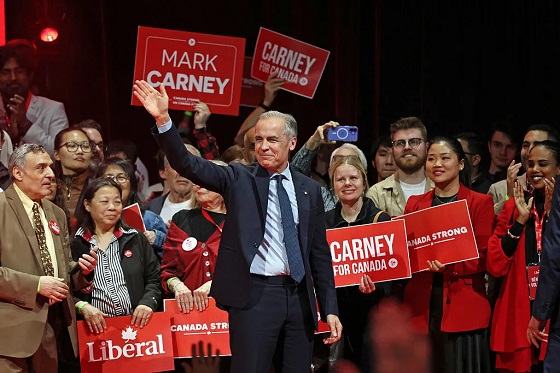
 Alberta2 days ago
Alberta2 days agoAlberta’s future in Canada depends on Carney’s greatest fear: Trump or Climate Change
-

 2025 Federal Election1 day ago
2025 Federal Election1 day agoThe Liberals torched their own agenda just to cling to power
-
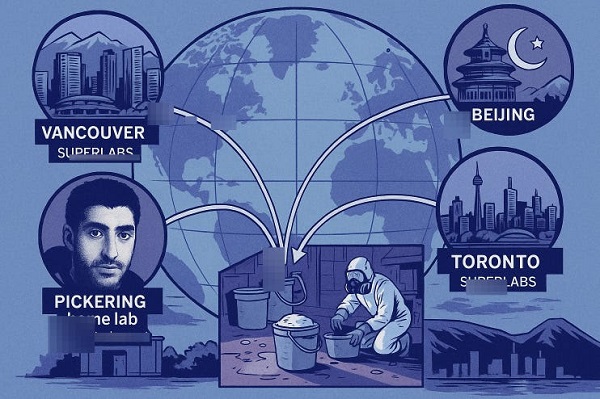
 Crime16 hours ago
Crime16 hours agoCanada Blocked DEA Request to Investigate Massive Toronto Carfentanil Seizure for Terror Links
-
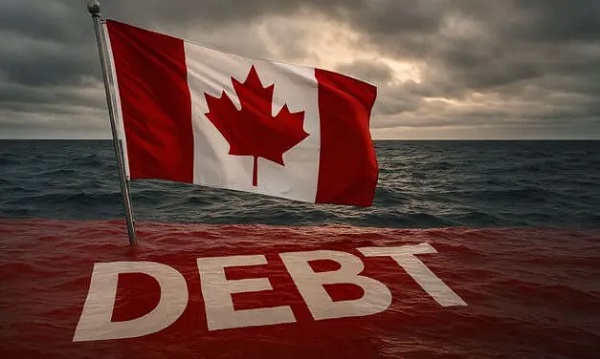
 Business1 day ago
Business1 day agoCanada urgently needs a watchdog for government waste
-

 Business1 day ago
Business1 day agoTrump says he expects ‘great relationship’ with Carney, who ‘hated’ him less than Poilievre
-

 Agriculture2 days ago
Agriculture2 days agoLiberal win puts Canada’s farmers and food supply at risk
-
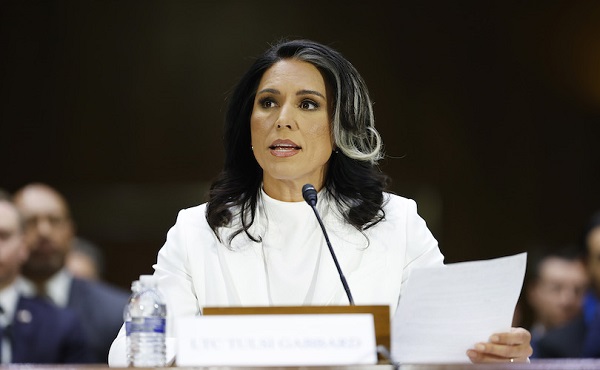
 COVID-198 hours ago
COVID-198 hours agoTulsi Gabbard says US funded ‘gain-of-function’ research at Wuhan lab at heart of COVID ‘leak’


